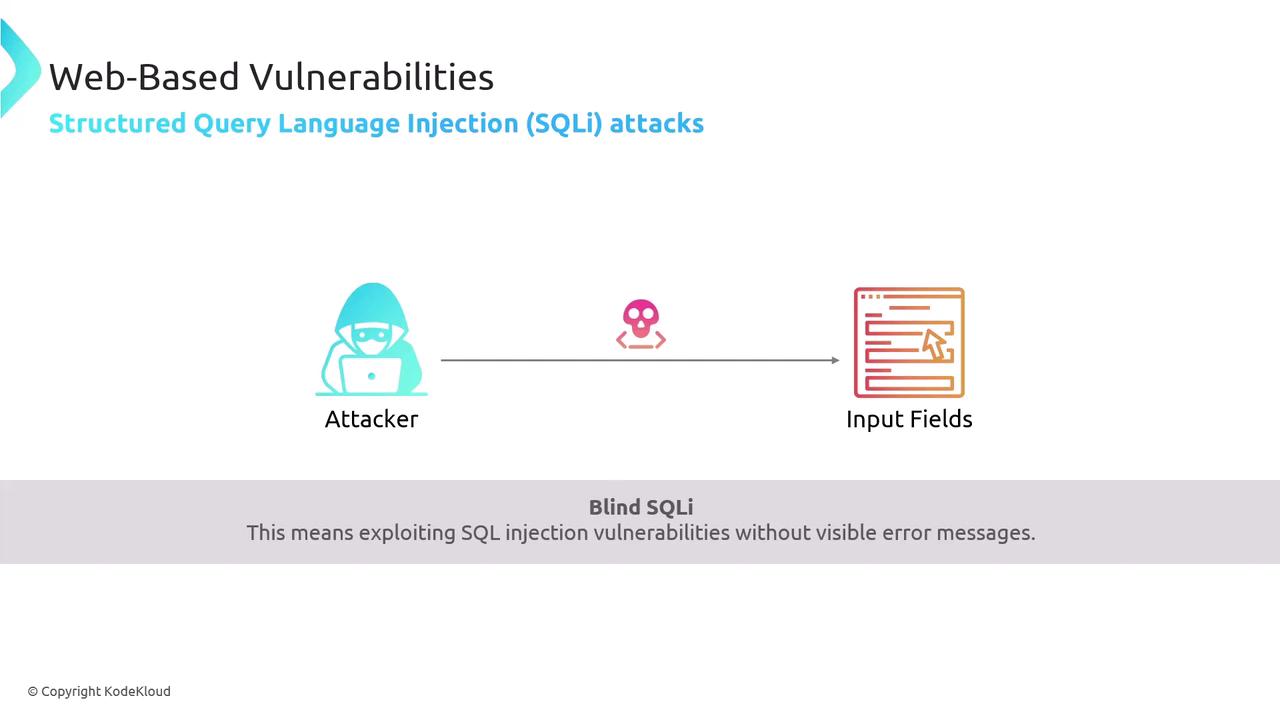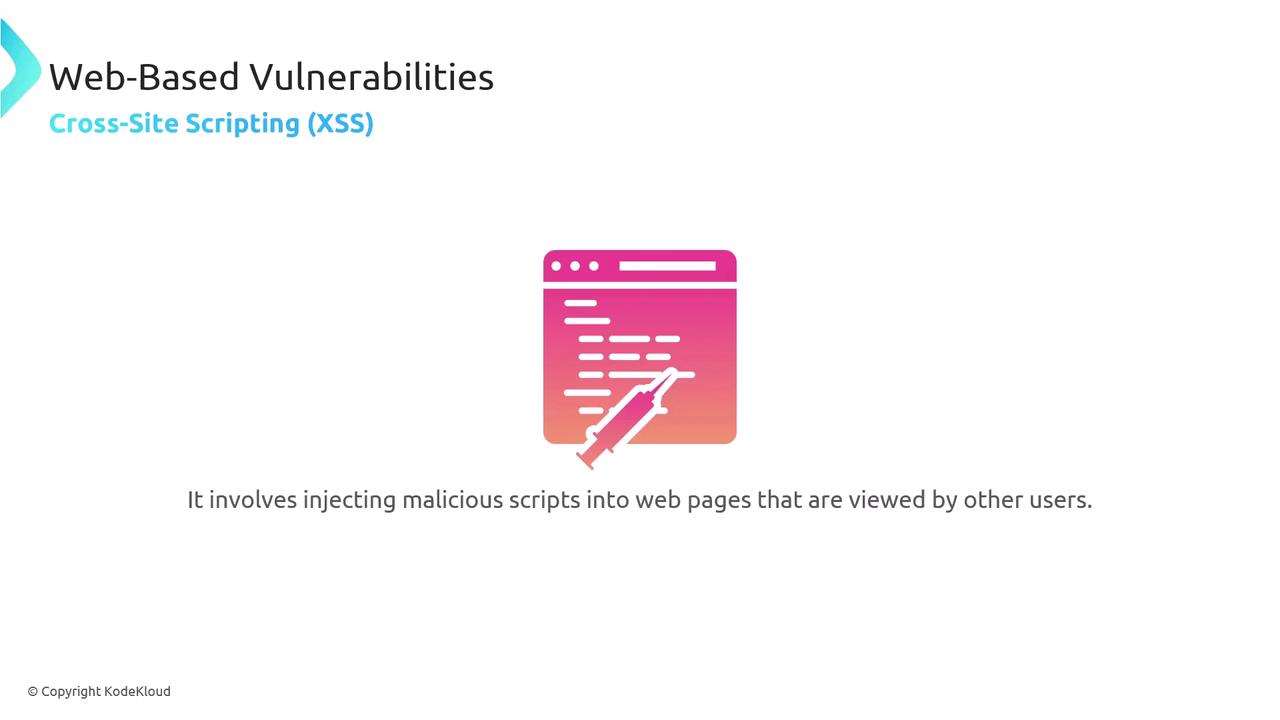CompTIA Security+ Certification
Threats Vulnerabilities and Mitigations
Operating System Vulnerabilities
In this article, we explore vulnerabilities affecting operating systems and web applications. We explain how attackers can exploit these weaknesses to gain unauthorized access, escalate privileges, or execute arbitrary code.
Operating System Vulnerabilities
Operating system vulnerabilities are security flaws found in platforms such as Windows, Linux, or macOS. Attackers can leverage these vulnerabilities in various ways:
- Privilege Escalation: Exploiting design or implementation flaws to obtain higher-level system privileges.
- Kernel Exploitation: Targeting bugs within the OS kernel to execute arbitrary code.
Note
Regularly updating and patching your operating systems can significantly reduce the risk of exploitation.
Web-Based Vulnerabilities
Web-based vulnerabilities continue to present a significant risk for modern applications. Two common examples include SQL Injection and Cross-Site Scripting (XSS).
SQL Injection
SQL Injection occurs when an application fails to sanitize user inputs that interact with its SQL database. This flaw allows attackers to inject malicious SQL code, which may be used in one of two ways:
- Combined Queries: The injected code is merged with legitimate SQL queries.
- Blind SQL Injection: The attack exploits the vulnerability without returning detailed error messages.

Cross-Site Scripting (XSS)
Cross-Site Scripting (XSS) involves injecting malicious scripts into web pages viewed by other users. Once these scripts execute in a victim's browser, they can:
- Steal session tokens.
- Perform actions on behalf of the user.
- Hijack user interactions with the web application.

Conclusion
Understanding both operating system and web-based vulnerabilities is essential for implementing robust security measures. By staying informed about these risks and prompt patching, administrators and security professionals can better protect systems against malicious exploits.
Watch Video
Watch video content